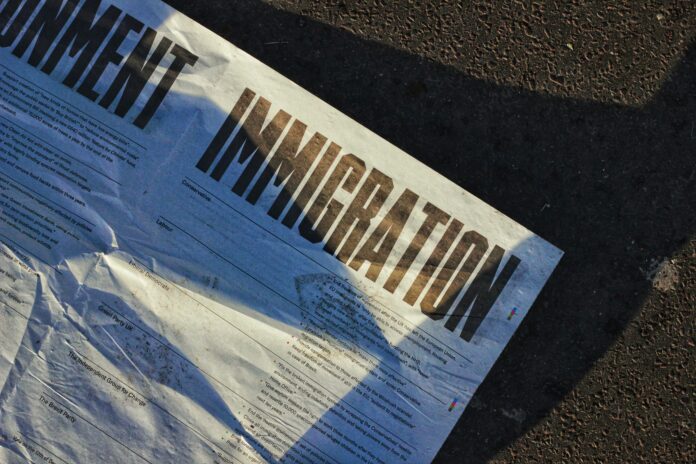A divided U.S. Supreme Court on Monday lifted a temporary restraining order that had barred immigration agents from conducting indiscriminate stops in Los Angeles, after a lower court determined in July that racial traits such as appearance and accent alone cannot justify questioning individuals.
In a 6-3 decision, Justice Brett Kavanaugh wrote a concurring opinion stating that the federal government had “demonstrated a fair prospect” that the high court would reverse the district court’s order if asked to rule on the merits.
“The Judiciary does not set immigration policy or decide enforcement priorities. It should come as no surprise that some administrations may be more laissez-faire in enforcing immigration law, and other administrations more strict,” Justice Kavanaugh wrote. “Article III judges may have views on which policy approach is better or fairer. But judges are not appointed to make those policy calls.”
Majority’s Reasoning
Justice Kavanaugh said the immigrant rights groups and individuals who brought the lawsuit lacked standing to seek broad, forward-looking relief against immigration raids carried out by agents with U.S. Immigration and Customs Enforcement and the Department of Homeland Security.
The plaintiffs, who alleged they had been stopped since early June without reasonable suspicion of being unlawfully present in the U.S., improperly obtained an injunction preventing ICE from detaining them again in the future, according to Kavanaugh. He argued that their claimed harm arose in the past and did not support ongoing relief.
Citing the 1983 precedent Los Angeles v. Lyons, Kavanaugh said the Supreme Court has held that individuals seeking to block police misconduct must show that such actions are likely to happen again. He concluded the plaintiffs lacked any strong basis to believe they would imminently face unlawful stops.
“Plaintiffs have no good basis to believe that law enforcement will unlawfully stop them in the future based on the prohibited factors — and certainly no good basis for believing that any stop of the plaintiffs is imminent,” he wrote.



